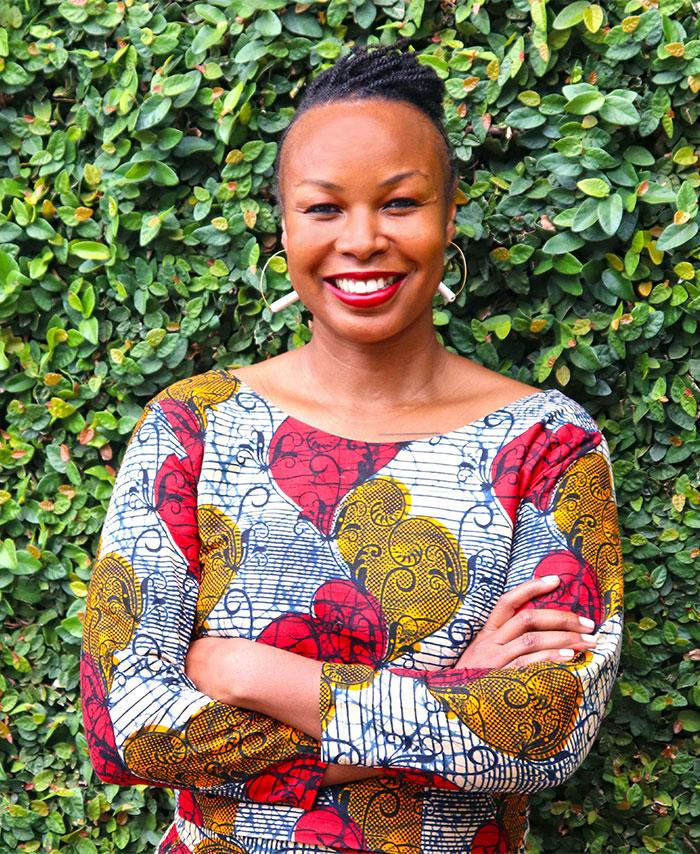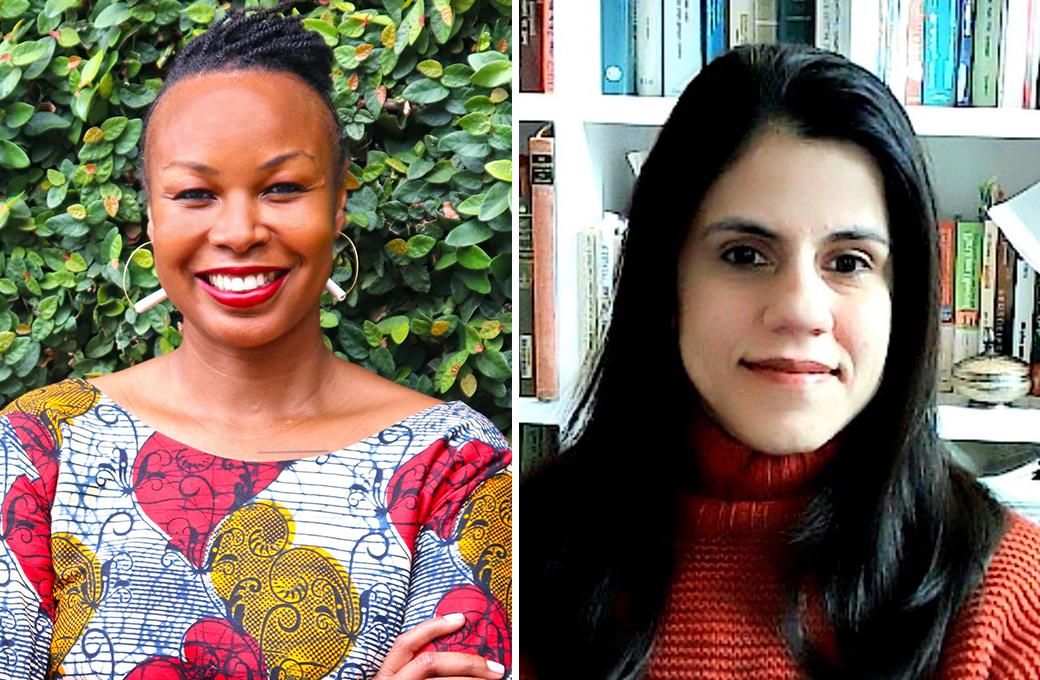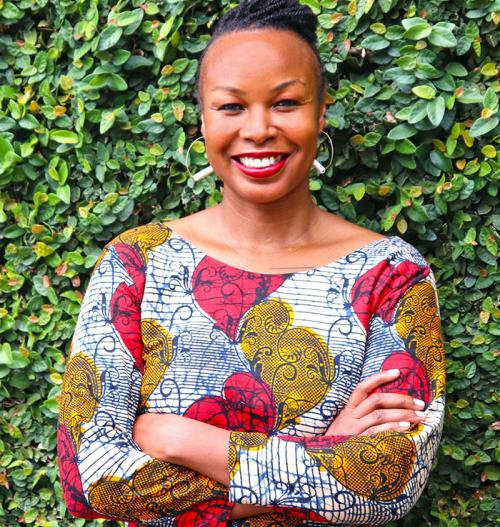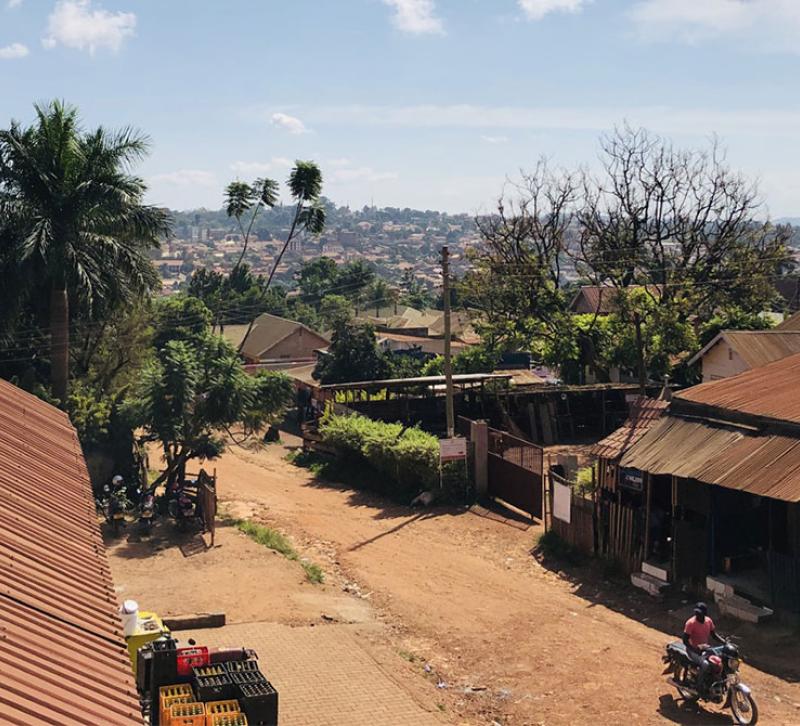
Research interests
Migration, mobilities, borders; political and news discourse; immigration policy; decolonial feminist thought; affect theory; critical race theory; critical masculinity studies; critical visuality; Black studies; queer death studies; UK/Europe/Africa
Helidah Ogude-Chambert
Helidah Ogude-Chambert is a Departmental Lecturer at the Oxford Department of International Development, where she teaches and convenes courses on Migration and Development and Relational Formations of Race and Human (Im)mobilities. She is one of the winners of the Teaching Excellence Awards (2025, Early Career Strand).
Her interdisciplinary research spans migration, mobilities, and border studies, anti- and de-colonial feminist thought, critical race and masculinities studies, discourse, visual, and affect theories, and queer death studies. Her scholarship is concerned with critically examining how states mobilize emotion, discourse, and visual culture to normalize migrant precarity and justify state practices of cruelty, racialised dispossession, and expulsion. Drawing on mixed and experimental methods, historical thinking, and critical theories, Helidah explores how elite actors manufacture affective publics—mobilizing feelings like disgust, panic, and anger—to render certain lives disposable and others protectable.
Her first book, Strange Fish: The UK Government and Media’s Industrialisation of Black Death at Sea (forthcoming, 2026), is a timely and urgent intervention into debates on migration, race, affect, coloniality, and state power. The book shows how the UK print media and government systematically depicted young, single Black migrant men as “deathworthy” during Europe’s so-called refugee crisis. Set against the backdrop of Britain’s ongoing racial anxieties, Strange Fish illuminates how affect operates as a powerful technology of governance—sustaining antiblack bordering practices and naturalizing them as commonsense political rationality. Through this work, Helidah offers new ways of thinking about racial violence, bordering, and the afterlives of empire.
Her research has appeared in academic journals, policy briefs, and popular platforms including The Journal of Race, Ethnicity and Politics (Cambridge University Press), Global Policy Journal, Oxford Border Criminologies Blog, Refugee History Blog, and Africa is a Country. Her published poetry—including “Strange Fish” and “Knotted Bodies of Water” in Japa Fire: An Anthology of Poems on African and African Diasporic Migration—explore themes of fugitivity, temporality, bodies of water, and Black death, reflecting her commitment to creative and arts-based methodologies as vital epistemic and pedagogical tools.
With over 15 years of experience in migration and development practice, she has worked across the World Bank’s Africa and East Asia portfolios as a Social Development Specialist, advising governments on inclusive development strategies for refugees and displaced populations. She also served as a Senior Policy Researcher in South Africa’s Presidency and Economic Ministry, and as a researcher at the UN Advocacy Office of the International Crisis Group in New York.
Her fieldwork and professional engagements have taken her to diverse contexts—from North-East Nigeria and Burundi to Indonesia, Palestine, Tanzania, Jordan, Zimbabwe, and the U.S.—where she has tackled issues ranging from displacement and conflict prevention to urban integration and social cohesion. As Principal Investigator, Helidah has led interdisciplinary research teams and secured major grants advancing policy and scholarship in major refugee-hosting countries like South Africa and Uganda, including projects on migration and job outcomes (World Bank) and the socio-political impacts of aid distribution in urban contexts (Center for Global Development).
Helidah holds a PhD in Public and Urban Policy (Migration Policy) from The New School in New York, and an MS in Global Affairs (Conflict Prevention and International Development) from New York University. She has been a Visiting Research Fellow at Oxford’s Refugee Studies Centre and a Global Governance Futures Fellow (Robert Bosch Foundation Multilateral Dialogues). She is currently a non-resident Senior Fellow at NYU’s Center for Global Affairs and a Research Affiliate at Oxford’s Centre on Migration, Policy and Society (COMPAS).
Helidah teaches on the Core Course in Migration and Development on the MSc in Migration Studies and offers an option on Relational Formations of Race and Human (Im)mobilities.
-
Journal articles and special issues( ) Can Redistribution Change Policy Views? Aid and Attitudes toward Refugees . Journal of Political Economy 133 (9)( ) Being Deathworthy: The UK Government and Media’s Industrialization of Black Death at Sea . Journal of Race, Ethnicity and Politics 1-28( ) An Unethical, Minimal, and Cruel Welfare State: COVID-19 and the Makings of a Demoralized US Citizenry . Global Policy Journal
-
Working papers( ) (forthcoming) Stoking Panic, Producing Disgust: The U.K.’s Racialization of Migrant Men from the Global South .( ) Can Redistribution Change Policy Views? Aid and Attitudes toward Refugees in Uganda . Center for Global Development Working Paper
-
Other publications( ) Cruel Colonial Re-Imaginings . Refugee History blog( ) ‘Strange Fish’ and ‘Knotted Bodies of Water’ . In A. Musiyiwa & R. Munya Japa Fire: An Anthology of Poems on African and African Diasporic Migration , Africa Migration Report Poetry Anthology Series, CivicLeicester( ) What our Waters Remember: On Wasted Bodies as Strange Fish . Border Criminologies blog( ) Rapid Social Analysis: COVID-19 and Vulnerable Migrants Across Africa . , The World Bank( ) The urban dimensions of mixed migration and forced displacement in South Africa . Development for Peace , World Bank( ) Mixed Migration, Forced Displacement and Job Outcomes in South Africa . , The World Bank( ) The Impact of Refugee Presence on Host Populations in Tanzania: A Desk Review . , The World Bank( ) Joint World Bank-UNHCR Mapping: Humanitarian and Development Responses in Refugee-hosting Regions of Tanzania . , The World Bank and UNHCR




